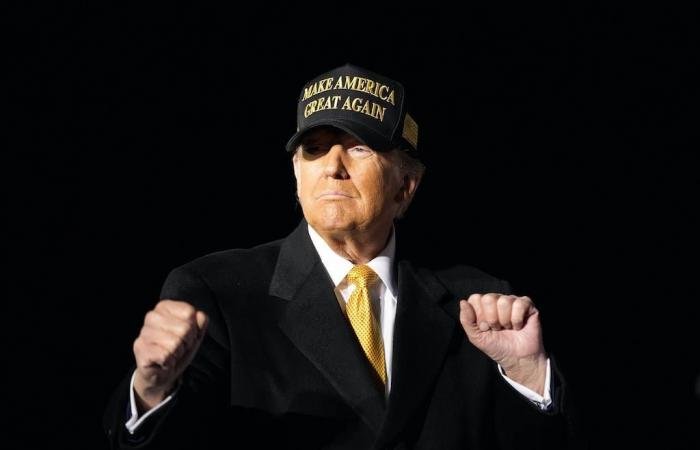Donald Trump’s return to the White House on Wednesday arouses concern in Iran, where memories of “maximum pressure” and sanctions during his first term continue to weigh on the daily lives of Iranians.
“It will be bad for Iran,” declared Bashir Abbaspour in a sporty, casual red outfit, in front of the former United States embassy in Tehran, whose surrounding wall has been decorated for decades with anti-American frescoes.
Iran and the United States, once close allies, have been at loggerheads since the 1979 Islamic Revolution, which toppled the Washington-backed Pahlavi dynasty.
The following year, the two countries broke off diplomatic relations, after an assault in 1979 by demonstrators against the embassy and the hostage-taking of several dozen American diplomats.
Their relations were never restored and Iran has since considered the United States as its main “enemy”.
With Donald Trump, “sanctions will increase and therefore prices too,” fears Bashir Abbaspour, a 37-year-old employee in a private company.
The Iranians had great hopes of seeing their daily lives improve, with the signing in 2015 of a nuclear agreement with the great powers, which was to put an end to the isolation of their country.
But in May 2018, Donald Trump unilaterally withdrew his country from the pact and reinstated heavy sanctions against Tehran, particularly against the Iranian oil and financial sectors.
The agreement provided for the lifting of part of the international sanctions against Iran, in exchange for its commitment not to acquire nuclear weapons, which Tehran denies.
– “Worried eyes” –
Donald Trump’s decision had serious consequences on the Iranian economy and caused inflation to soar, while the national currency, the rial, depreciated sharply against the dollar, causing it to lose purchasing power.
“I am worried about the situation in the country and its economy, people are under pressure,” says Zahra Eghbali, a 56-year-old housewife, covered with the Islamic veil obligatory in Iran.
Washington and Tehran “should, in the interest of the population, reach an agreement,” she told AFP.
The American presidential election on Wednesday is far from making the front pages of all the daily newspapers, closed before the closing of the polling stations in the United States.
But the reformist newspaper Etemad headlines “the worried eyes of the world”, with a full-page caricature of Kamala Harris holding a little Donald Trump in her arms in the campaign.
The very official Jam-e Jam, for its part, highlights photos of the two candidates against a background of demonic shadows – a reference to the distrust of Iranian power towards the United States, whoever their leader is.
“The result of the American elections will make no difference to us,” reads the headline, repeating a comment by the head of Iranian diplomacy Abbas Araghchi.
– Come out of isolation –
“The attitude of the United States (towards Iran) will not change with Trump or any (any other president),” says Reza Aram, a 51-year-old insurance employee.
This feeling is shared by many Iranians.
Iranian President Massoud Pezeshkian, who took office in July, has promised to bring his country out of “isolation” to offset the impact of international sanctions.
During the presidential campaign, U.S. officials accused Iran of alleged interference in the election.
Donald Trump, for his part, accused Tehran of posing “serious threats” to his life, after an assassination attempt in July.
Iran described these accusations as “malicious”.
Donald Trump’s first term was also marked by his decision in January 2020 to have the powerful Iranian general Qassem Soleimani, architect of Iran’s regional influence strategy, killed in Iraq.
Washington and Tehran had appeared on the verge of direct military confrontation. The Islamic Republic has launched legal proceedings in Iran against Donald Trump for this assassination.
Dakaractu






